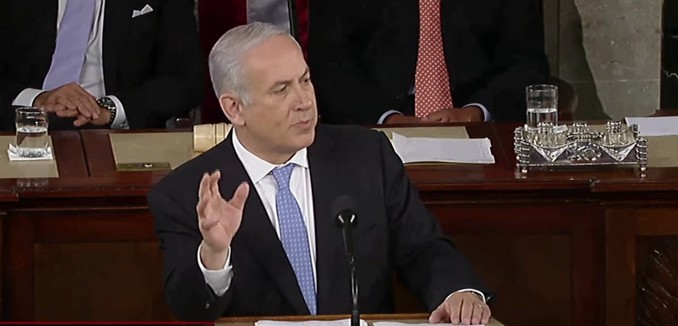Prime Minister Benjamin Netanyahu’s planned speech, rather than being divisive, will address the Iranian threat which is a matter of bipartisan concern in the United States, David Hazony argued Monday in The Forward. Hazony is editor of The Tower.
After asking, “[w]hat happens, however, when you actually bracket out the prosaic and petty quarrels of politics?” Hazony explains that Netanyahu, as leader of the nation most directly threatened by Iran, has a point of view that needs hearing. More than that, “[t]here is no subject about which Netanyahu has been more consistent in the past two decades than the Iranian nuclear threat.”
Hazony demonstrates that support for Israel and the Iranian threat are both issues, despite recent posturing, that have strong bipartisan support.
In the view of many in Congress, Iran poses a serious threat not just to Israel as an ally, but also to American interests around the world. They still shout “Death to America” in Tehran, you know. Israeli Ambassador Ron Dermer was right when he put it this way in The Atlantic: “In the last couple of weeks, people have heard from Prime Minister Cameron [of Great Britain] and other European leaders about the Iran issue. One would hope that people would feel that the opinion of the prime minister of Israel, a staunch ally of the United States threatened by Iran with annihilation, would also be worth hearing.”
And to judge from two recent congressional votes, there is nothing partisan about this sentiment. On January 29, the Senate Banking Committee overwhelmingly voted to approve the Kirk-Menendez bill. The vote was 18–4, and the majority included three Democrats who had previously neither sponsored nor voted for increased pressure on Iran. The possibility that this bill will eventually pass with a veto-proof majority has gone up significantly.
The following day, 75 Senators signed a letter to Secretary of State John Kerry pledging to hold up further aid to the Palestinians pending the State Department’s review of whether such funding would violate America’s law in the wake of the Palestine Authority’s ascension to the International Criminal Court treaty and the court’s decision to open an inquiry into last summer’s Gaza war.
In the end Hazony asks, “given that what is decided in this negotiation affects not just Americans but also the whole world, does it still make sense that Netanyahu should not speak before Congress as a deal starts to come together?” He answers, “[l]et’s put aside politics and hear him out. We just might learn something.”
[Photo: PBS NewsHour / YouTube ]




